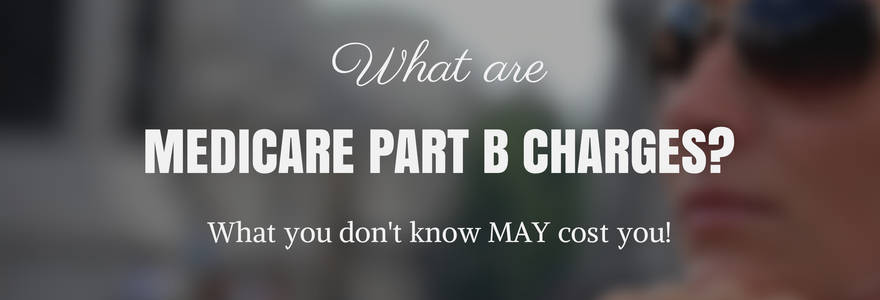Medicare Part B Excess charges are charges that fall under the doctor charges/outpatient part of Medicare (Part B). These charges are not charged by all medical providers, but in most states, providers do have the option of charging these “excess” charges. So what are Part B Excess charges? And when are you responsible for them?
fall under the doctor charges/outpatient part of Medicare (Part B). These charges are not charged by all medical providers, but in most states, providers do have the option of charging these “excess” charges. So what are Part B Excess charges? And when are you responsible for them?
Medicare has a predetermined payment schedule for each service or procedure. In other words, they pay a set amount to providers. These fee schedules are location-specific – they vary depending on where you are in the country – and they change over time. A doctor has the option, in most states, of charging up to 15% ABOVE the Medicare-approved payment schedule.
These so-called Medicare Part B Excess charges of up to 15% above the Medicare-approved amount are passed on to the patient and billed directly to you after the fact. That is, unless you have a Medigap plans that pays the Part B Excess charges for you. The plans that do this are the two most common plans – Plan F and Plan G.
GET A LIST OF THE PLAN F AND PLAN G OPTIONS FOR YOUR ZIP CODE
Where should we email the list of plans?
[si-contact-form form=’9′]I hate spam too, so I will never send such to you!How Common are Medicare Part B Excess Charges?
Doctors that charge Part B Excess charges, in most parts of the country, are relatively uncommon. Some recent studies have put the national percentage around 5% of instances where doctors charge “excess charges”. Keep in mind, even if a doctor does charge them, they are limited to 15% of the Medicare-approved payment schedule.
Situations that are usually seen as having a higher incidence of Part B Excess charges are visits to a specialist. Additionally, these charges appear to be more commonplace in urban areas or areas with higher costs of living overall.
That said, if you do go to the doctor regularly and have a doctor that does charge “excess charges”, it may be beneficial to ensure you are in a plan that covers them. There is no annual limit on the number of times a doctor can charge these charges. Likewise, there is no dollar amount limit to Part B Excess charges – only the 15% “cap” above the Medicare-approved amount. So, it is important to know how common Medicare Part B Excess charges are in you particular area of the country.
Lastly, another consideration is that, although you may not have regular doctor visits now, you should choose a Medigap (Medicare Supplement) plan based, at least somewhat, on a long-term plan. You have an initial 6-month open enrollment window, and after that, would have to “qualify medically” to move to a different, more comprehensive plan.
What States Prohibit Medicare Part B Excess Charges?
As previously mentioned, there are some states that prohibit Part B Excess charges altogether. In these states, doctors are not allowed to implement Medicare Part B Excess charges at all and must stick to the Medicare-approved payment schedule.
The current list of those states that prohibit them is: Massachusetts, Minnesota, New York*, Ohio, Pennsylvania, Rhode Island, and Vermont.
*New York: physician_charges.pdf (nyassembly.gov)
How to Avoid Medicare Part B Excess Charges?
There are several ways to avoid Part B Excess Charges. The most obvious, of course, is to live in a state that prohibits them (see list above).
Beyond that, you can always check with your regular doctors to see if he/she does use “balance billing” (i.e. if they charge Part B Excess charges). If so, you can choose a doctor that does not.
Or, as previously discussed, you can pick a Medigap plan that covers these Part B Excess charges in full. The plans that do so currently are Medigap Plan G and Medigap Plan F.
If you have questions about how Medicare Part B Excess charges work, or anything else regarding Medicare or Medicare Supplement plans, feel free to contact us here or call us at 877.506.3378.
